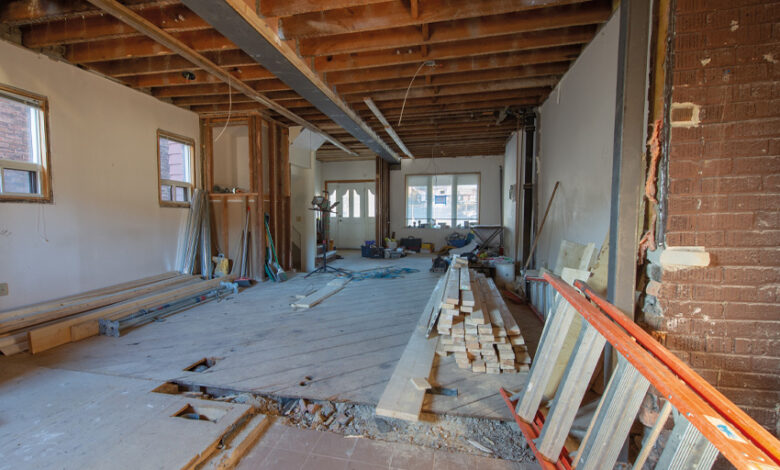Almost 23,000 new workers needed for retrofit goals

Almost 23,000 new entrants will have to be recruited into managerial, professional, skilled, and semi-skilled occupations by 2030 if the Government is to meet its retrofitting targets, a government-commissioned report has found.
The 23,000 extra workers required to meet the Government’s retrofit targets through to 2030 will have to be supplemented by an another almost 25,000 extra workers needed to meet housebuilding targets in the same period, the report found. Commissioned by SOLAS (the Further Education and Training Authority) and the Department of Further and Higher Education, Research, Innovation and Science, the report also states that an extra 3,866 workers will be needed for repair and maintenance, bringing the extra workers necessary for the achievement of government targets to 50,831.
The bulk of the 22,779 extra workers needed in order to satisfy workforce requirements for the meeting of the Government’s target of retrofitting 500,000 homes to B2 BER standard by 2030 is made up of craft workers, with an estimated 12,266 needed between 2023 and 2030. 8,142 workers in other trades are estimated to be needed, along with 2,369 professionally qualified workers.
The report takes 2019 as its base year, in which 3,870 workers overall were employed to work on the retrofit scheme, and reasons that its 22,779 estimate for recruitment will mostly be accounted for by the expansion of the scheme – with 18,180 workers to come to address this expansion and the remaining 4,598 acting as replacements for those leaving the retrofit workforce.
The Department of the Environment, Climate and Communications and the Sustainable Energy Authority of Ireland (SEAI) are targeting 500,000 homes to be retrofitted to B2 BER standard by 2030. Data from the Department and SEAI states that 33,300 homes were retrofitted to such standard in the three-year period 2019-2021 and that it is expected that 14,400 will have been retrofitted in 2022. 71,300 homes are to be retrofitted to B2 standard in the three-year period between 2023 and 2025, meaning that 375,000 houses – 76 per cent of the total target – will be retrofitted in the five-year 2026-2030 period.
Achieving this goal would require an increasing of the average amount of homes retrofitted per year to 75,000 during this period, which would mark a large increase on the 26,400 houses to be retrofitted in 2025 and “presents a significant challenge to the education and training system”.

Upskilling challenges
In its examination of the demands these targets will place on the education and training system, the report found that just 2,369 of the 22,779 to be recruited will be required to have third level qualifications, with the remaining 20,410 to be made up of those possessing National Framework Qualifications between levels one and six.
Recent data shows positive developments in this regard, with enrolments in retrofit and NZEB training programmes having increased by 118 per cent between 2020 and 2021 and 156 per cent between 2021 and 2022. Enrolments stood at a record 2,034 in 2022. The Climate Action Plan 2023 seeks to provide for further places in such courses, with €29 million committed to upskilling and reskilling programmes and €10 million to green skills modules pledged in the hopes of providing 4,550 retrofit and NZEB places and 60,000 green skills places.
One of the key recommendations within the report centres on producing the amount of workers with such qualifications needed; it is recommended that a new training course be introduced to “produce workers who are capable of providing assistance to qualified craft workers who are engaged in the retrofitting of houses to a B2 standard” and that this course should be “modelled on the current nearly zero energy building (NZEB) fundamental awareness course”, which attracted 373 unique learners across nine courses in 2019. The intention behind the arranging of such a course would be the production of qualified retrofit assistants, “thus reducing the burden of work on for example, qualified plumbers”.
The report also recommends that consideration should be given to the creation of a national centre for the development and assessment of construction skills that could be modelled on the National Construction College East in King’s Lynn, Norfolk that performs such a function for the UK. It is recommended that an audit be carried out at the National Construction Training Centre in Mount Lucas, County Offaly in order to investigate its potential to fulfil such as role. The National Construction Training Centre currently offers a wide range of training courses in retrofitting houses and “it has sufficient land for a significant extension in current capacity”.
Apprenticeships
Reaching the targets for both retrofitting and housebuilding will require both an increase in the numbers of apprentices registering for craft qualifications and a change of the focuses of those who are registering, the report illustrates. For example, 902 new entrants are required to meet targets for electricians in 2023, but more than double that figure – 1,949 – registered as apprentices four years prior; in comparison, 1,325 new carpenters are also required in 2023, but less than half of that figure – 628 – registered as apprentices four years prior.
Factoring in that the rate for those who fail to complete their apprenticeships has never been lower than 25 per cent, it is clear to see that some craft professions will have a surplus of workers for the achievement of government goals while other professions face a deficit. The report does, however, note that “many of the education and training required involves the upskilling of existing workers rather than the introduction of new programmes” and such upskilling can be served by continuing professional development courses and education and training boards.
In order to maintain observation of such issues, the report also recommends that a forecasting model be “continuously updated in response to relevant changes in the external environment” and that this model use 2022 as its base year. It is also recommended that a group be set up by government consisting of the various institutions representing construction professionals to “generate ideas which would assist in the enhancement of productivity and sustainability in Irish construction” and that this “the coming together of professionals from many different disciplines would provide a fertile ground for the cross-pollination of ideas which, if implemented, could enhance sustainability and productivity”.





